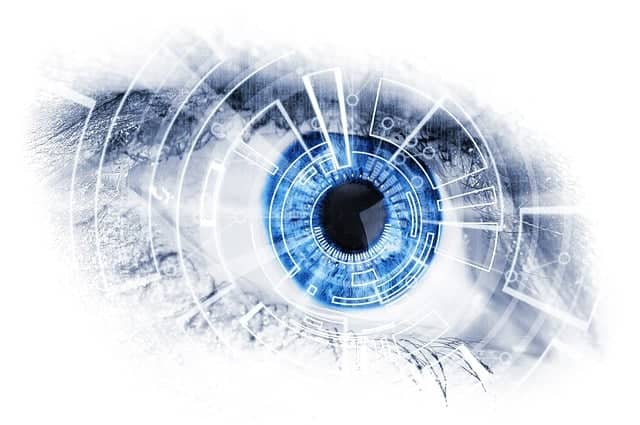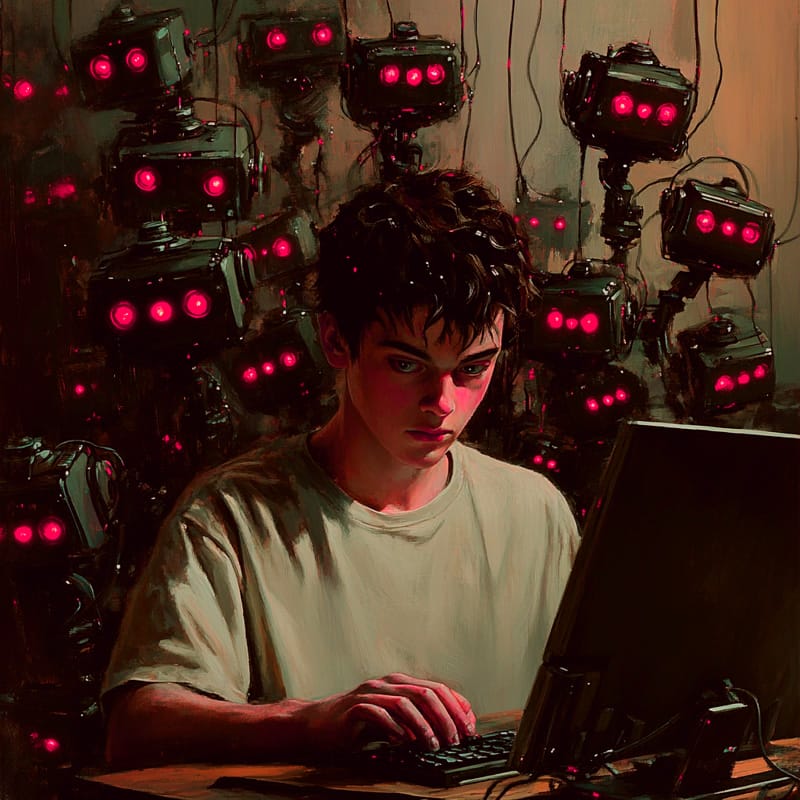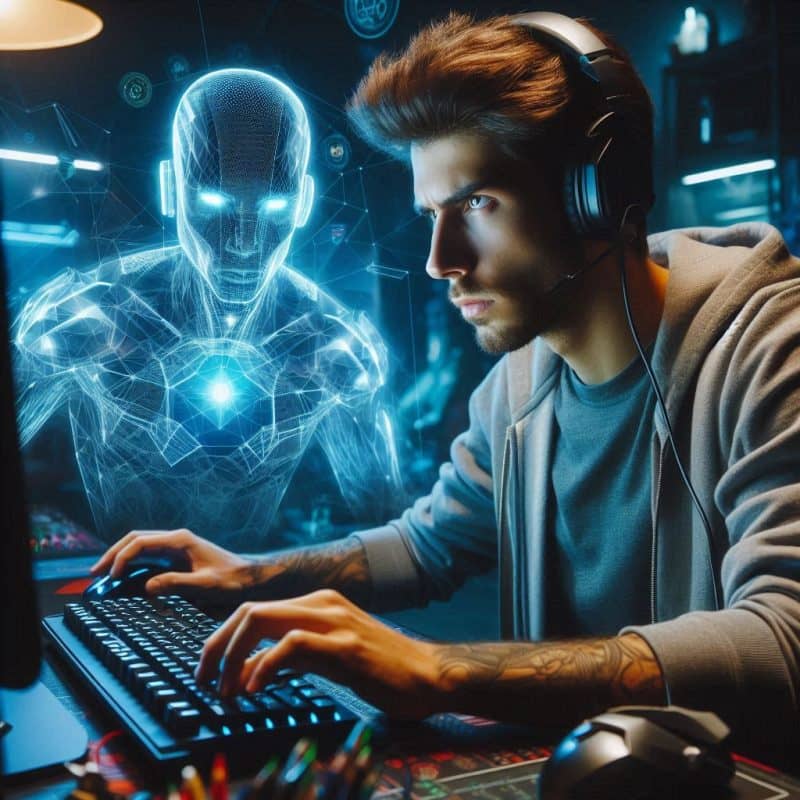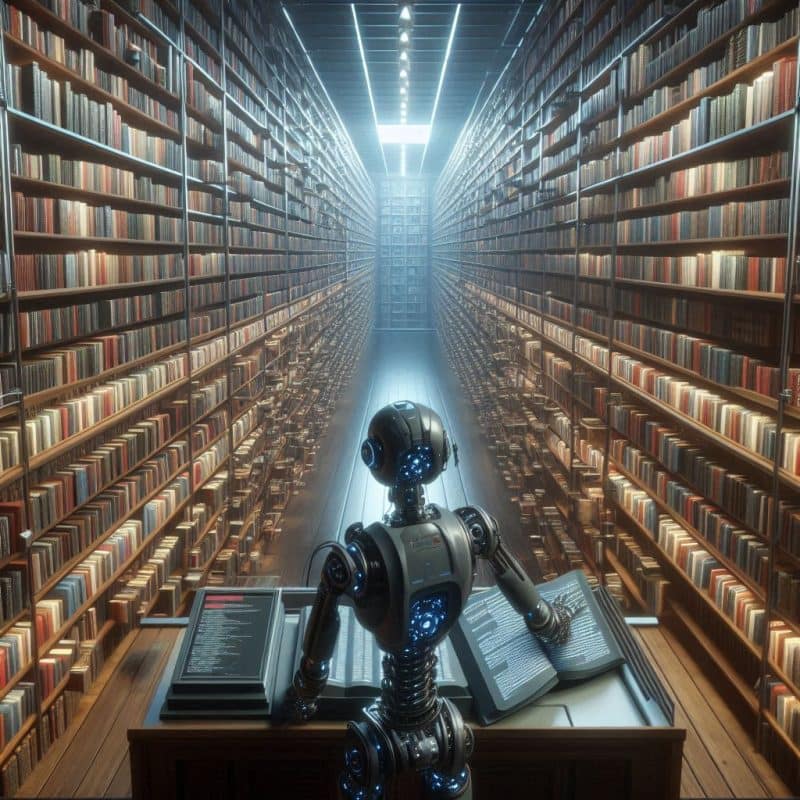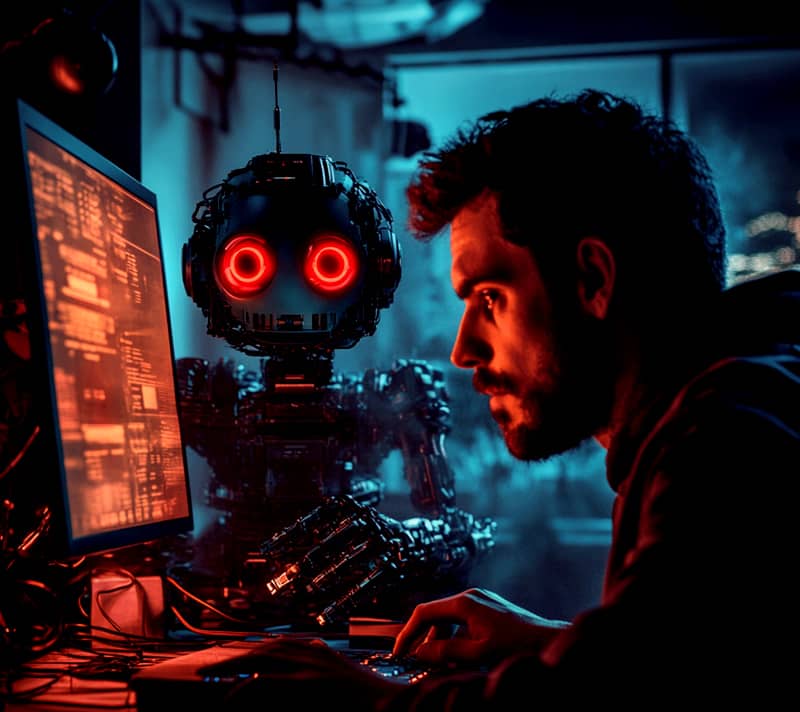Computer Vision is a field of artificial intelligence that enables computers to interpret and make decisions based on visual data. Essentially, computer vision gives machines the ability to “see” by processing images and videos to extract useful information.
Do you know that some computer vision devices are capable of extracting information from multiple objects concurrently? Super high-resolution cameras are also capable of focusing on far away objects. In these respects, computer vision is superior to human vision.
Computer vision is actually a technology that is very common in modern urban life. In fact, it is very likely that you will find the technology integrated into home security devices and your smartphone camera.
Are you curious to find out more about the other capabilities of computer vision? If so, let’s explore how this transforming technology can affect your daily life.
How Does Computer Vision Work?

Image by Pete Linforth from Pixabay
Computer vision works by analyzing visual data using algorithms and mathematical models. Getting into details of the analytical processes will be too technical for the layman to understand. So, here is just a simple breakdown of how the technology works:
- Image Capture: The process begins with capturing an image or video using a camera. CCTV cameras, home security cameras, smartphone cameras, drone cameras, webcams may all have computer vision tech in them.
- Processing: The captured image is then processed by software that breaks it down into pixels. Pixels are basically very tiny dots that make up the image. A high number of pixels can generate clear and sharp images, even from far away objects.
- Analysis: The software then analyzes these pixels to detect patterns, shapes, colors, and other features. Love the tech or hate it, computer vision is increasingly getting better at object detection and recognition.
- Recognition: Once the analysis is done, the software can recognize different objects. Even your home use smart camera may be capable of differentiating people, animals or actions within the image. High-end security cameras deployed in public spaces may even be capable of detecting different emotions like stress, nervousness, sadness, etc.
- Decision-Making: Based on this recognition, the computer can be programmed to make autonomous decision. For example, the tech can be used to identify a person or count the number of cars on a road. If human intervention is deemed necessary, the system can trigger alarms to alert the user to take further action.
You are being watched online.
Tech Tip: Protect your online privacy.
A lot of what you do online is tracked. There is no way to completely block or avoid all Internet trackers, but you can at least use a Virtual Private Network (VPN). Use my affiliate link below to get your VPN offer and I may get a commission if you make an online purchase at Namecheap’s website.
Start your free trial with Namecheap FastVPN!

How Computer Vision Technology Is Used In A Modern Society
Real-World Applications of Computer Vision
Most people are probably not aware that computer vision is very much an integral part of urban life. Here are just a handful of examples on how the technology is helping to improve city living:
Smart Traffic Management

Computer vision is most certainly being used to monitor and manage traffic in real time. Cameras placed at intersections can analyze traffic flow, detect congestion, and adjust traffic lights to reduce jams.
A complex network of computers update information about road conditions which are regularly transmitted to data centers. The information is then propagated to apps and websites utilized by road users.
This highly interconnected system helps keep cities moving smoothly. We might not be aware of it, but the system plays a critical role in maintaining safety on the roads, especially during rush hours or when the roads are under construction and repairs.
Public Safety and Security
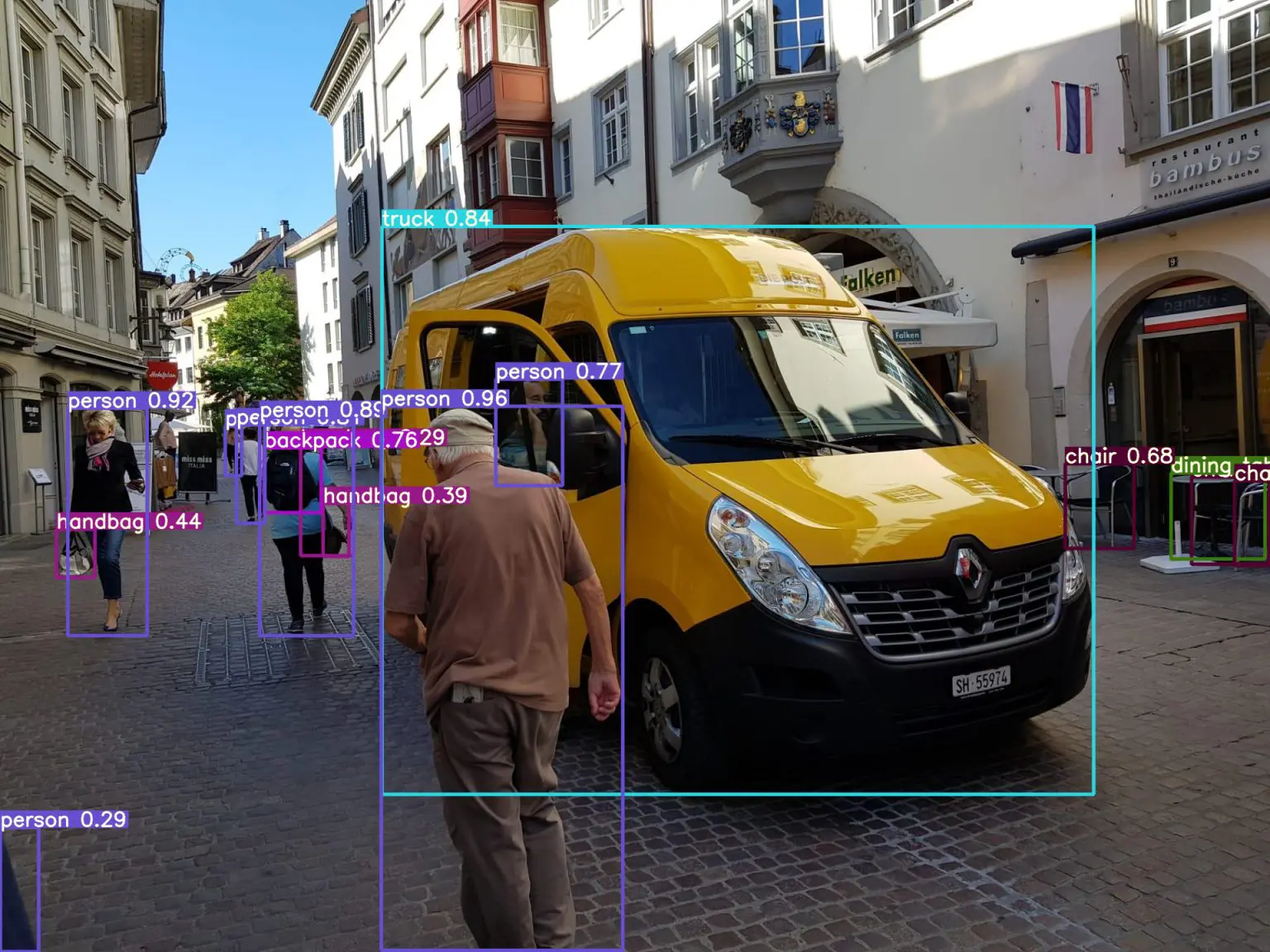
When you walk around in high traffic urban areas, you’d have surely notice some surveillance cameras around. These cameras do more than just record videos. The cameras might look simple, but they are likely to be equipped with sophisticated computer vision technology.
This means you can assume the cameras are capable of detecting number plates, unusual activities or even recognize faces. The high-tech cameras help law enforcement monitor public spaces and respond quickly to incidents.
Some cities also use police drones to keep an eye on public spaces. You can expect these devices to also be equipped with high grade sensors and cameras, not found in your typical consumer grade drones.
You should watch the video below to get a better idea on how computer vision can instantly recognize a face and pull personal details about that person from the Web in seconds. With this tech in hand or should I say on your eyes, the implications are certainly far reaching. In the wrong hands, you can imagine how the tech can be used for nefarious purposes.
‼️🤖 Harvard students used Meta's Smart Glasses with facial recognition software.
— Radar🚨 (@RadarHits) October 4, 2024
They were able to find FULL PERSONAL DETAILS within minutes of seeing strangers on the street.
Creepy af.
pic.twitter.com/BCHvxT2xoT
The concept product above created by the students look very similar to Google Glass, a product that was not accepted well. It partly failed because it is said that the device can be used to secretly record people. This idea freaked people out as it infringes on their privacy. (source: wired.com)
Autonomous Transportation
You might be surprised to know that self-driving tech had been around for decades. Before the technology was integrated into self-driving cars, computer vision has been implemented in autonomous transportation. For example, back in the late 1990s, a small Asian city – Kuala Lumpur were already ferrying passengers around in autonomous driverless trains equipped with sophisticated sensors.
In this use case, computer vision helps in detecting pedestrians, vehicles, and obstacles, ensuring a safer and more efficient public transportation system. A public transportation system in a modern city may transport hundreds of thousands of commuters in a day. Thus, computer vision is just one of the essential technologies that ensure everybody gets to their destination safely.
Retail and Shopping

The many CCTV cameras you see in shopping centers may be there for more than security purposes. You see, computer vision can also be used for customer analytics purposes. Such cameras can track how many people enter a store, what products they look at and how much time they spend in certain areas.
The data gathered helps businesses improve their services and create better shopping experiences. So now you know that customer data collection is happening behind the scene, even when you are not online. Marketing is all about return on investment, thus every commercial message that is being directed to you is usually driven by solid consumer data analytics. This is how the term ‘big data’ came about in recent years.
Consumer Technology

If you are avid with the smartphone camera, you would have surely used a feature before called ‘face detection’. Your camera is able to detect the subject’s face because it is powered by computer vision. If you tweak some further settings, artificial intelligence algorithms is triggered, suggesting ways on how you can beautify and enhance the photo.
Actually most consumers probably only use their smartphone for leisure purposes, without realizing that even a basic smartphone these days actually contains more computing power than a 20 year-old desktop computer. So if you desire to be more tech-savvy, you can certainly begin by gaining more knowledge about the many systems inside your smartphone.
After all, we can quite safely predict that any future advancements in smart technology will most certainly find its way into the iPhone or Android phones, since they are the most ubiquitous devices throughout the world.

Learn How To Defend Your Digital Life
Explore free cybersecurity courses that would build up your tech skills or even open up more career opportunities. You only pay if you need the certificate and I may get a commission as an affiliate.

How Computer Vision Technology Is Used In A Modern Society
Concerns With Government Use Of Computer Vision Technology
As we can see, computer vision can offer many benefits to society. However, it also raises privacy concerns, particularly when governments use the tech to overly monitor citizens.
So, here are a few notions which I think we should all keep in mind as citizens and consumers:
- Privacy Issues:
Someone is always watching over you is more than just a spiritual feeling, and is almost a fact if you live in a modern smart city. The constant surveillance can lead to a loss of privacy, which I’d say is pretty much out of our control. - Potential for Misuse:
There’s always a risk that computer vision technology could be misused by authorities. We already know it is being used to track individuals without their consent. However, what if the tech is used to target specific groups based on race, gender, or political beliefs? - Accuracy and Bias:
Computer vision systems are not perfect. The machines can make mistakes e.g. misidentifying someone or misunderstanding an action. Moreover, if the algorithms are biased, it might disproportionately lead to unfair treatment of certain groups of people. - Data Security:
The data collected by computer vision systems is vast. We have to wonder if the data is really stored and managed securely. If this data is hacked or leaked, it could lead to serious consequences, such as identity theft or exposure of sensitive information. - Ethical Concerns:
The use of computer vision in government surveillance raises ethical questions about the balance between security and freedom. While it can help keep cities safe, it can also be seen as an invasion of personal freedom and autonomy.
Being more tech-savvy enables you to SEE what lies behind technologies.
Be More Tech-Savvy With Free Computing Online Courses.
You can study free IT and computing online courses with Alison and complete the entire course with graded assessments. You only pay if you need the certificate and I may get a commission as an affiliate.
Conclusion
Computer vision is undeniably a groundbreaking technology with the power to revolutionize the way we live in urban environments. By enabling machines to “see” and understand the world around them, it offers numerous advantages that can significantly enhance city life.
The potential applications of computer vision are vast and growing. In cities where efficiency and safety are paramount, automating and improving services through computer vision can be beneficial. Some of the benefits could come in the form of more responsive policing systems and smoother traffic flows. Public transportation is also safer, and streets can be cleaner with robotic sweepers working tirelessly all year round. These are real futuristic scenarios thanks to intelligent machines that can process visual information faster and more accurately than humans ever could.
However, while the benefits are impressive, it is crucial to approach the implementation of computer vision with caution. For instance, where should we draw the line when it is employed by governments to monitor citizens? The power of this surveillance technology also brings with it significant responsibilities and challenges that cannot be ignored.
One of the most pressing concerns is privacy. The idea that our every move in public spaces could be tracked and recorded by machines can feel intrusive. Without proper regulations, there is a risk that this powerful tool could be used to unjustly target individuals or groups.
As smart cities continue to embrace the potential of computer vision, it is essential for citizens to be aware about its use.

